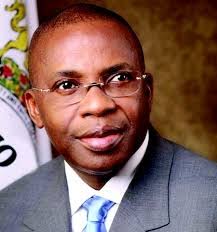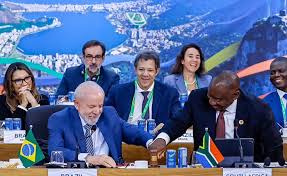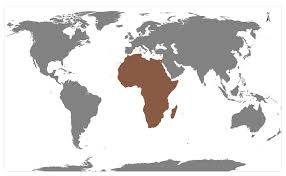As the 2027 general elections gradually approach and political drums begin to sound in every corner of Nigeria, one voice is rising above the noise—not that of a politician, but that of a lawyer, and not just any lawyer.
Senior Advocate of Nigeria (SAN), Barrister Ngozi Olehi, is asking the Nigerian Bar Association (NBA) to wake up and smell the gavel. In his words, it’s high time the legal profession cleaned its own house, especially when it comes to the role of lawyers in Nigeria’s politics.
Speaking at a Christian Lawyers Fellowship of Nigeria (CLASFON) seminar in Owerri, Imo State, Olehi did not mince words. With the fire of a courtroom advocate and the passion of someone tired of seeing the same drama play out every election cycle, he called on the NBA to create a code of political behaviour for Nigerian lawyers—a guide to remind those in public service of the honour, duty, and conscience that should come with being a lawyer.
“The rule of law is not just for decoration or legal theory textbooks,” Olehi said. “It’s a powerful tool that can change a nation. Just ask Singapore.”
In his keynote speech titled “From Ruins to Reform: Action Plans Towards Ethical Rebirth of the Legal Profession in Nigeria,” the learned silk argued that many Nigerian lawyers in politics have become part of the problem, not the solution. Instead of using the law to uplift society, some have chosen to “romance with corruption,” he said, leaving Nigeria in what he bluntly described as “a state of economic and governance ruin.”
Olehi compared Nigeria’s situation to Singapore’s, reminding the audience that Singapore’s rise from poverty to prosperity was driven largely by rule of law and ethical leadership—tools that Nigerian lawyers also have but sadly underuse.
And if you think he’s exaggerating, the stats are humbling. According to the 2024 World Justice Project Rule of Law Index, Nigeria ranks 120th out of 142 countries. That’s below Niger (114), Liberia (109), and even Togo (106). As Nigerians would say, “na who do us this thing?”
The rule of law, Olehi explained, rests on four legs: accountability, just laws, open government, and accessible, impartial justice. And it’s measured using nine indicators—like absence of corruption, order and security, regulatory enforcement, and more. Nigeria, it seems, is failing on most of them.
He warned that if the NBA continues to look away while some of its members go rogue in politics, the legal profession could soon lose the nobility and dignity it once commanded. “The breach of our Rules of Professional Conduct is now more observed than obeyed,” he said.
To stop the decline, Olehi wants the NBA to strengthen its disciplinary systems, especially at the grassroots branch levels. For him, being a lawyer isn’t just about earning fees or winning cases; it’s about serving justice and being the conscience of the nation—even if it means stepping on some powerful toes.
“You are ministers in the temple of justice,” he reminded his colleagues. “Your loyalty must be to the court, not to your political godfathers.”
His keynote sparked thoughtful reactions from discussants, including Hon. Justice I. M. Njaka, Associate Prof. Chizoba Okpala, and Barr. Mrs. E. O. Echebima. The event was chaired by Hon. Justice Alma Eluwa, adding judicial weight to an already serious conversation.
In a country where lawyers are often seen as the last hope of the common man—or as the last resort for the powerful—Olehi’s words are a timely call for self-reflection. Because if lawyers won’t uphold justice, who will?
And with 2027 drawing closer, one can only hope that Nigerian lawyers will remember their robes are not just for courtroom fashion, but for honour, service, and yes—nation-building.
Because if we must move from ruins to reform, it has to start with the conscience of the court. And according to Olehi, that conscience needs a serious reboot.
Let’s just say… if lawyers were jollof rice, Nigeria deserves the spicy, well-seasoned type—not the one that burns at the bottom and leaves the whole pot bitter.





